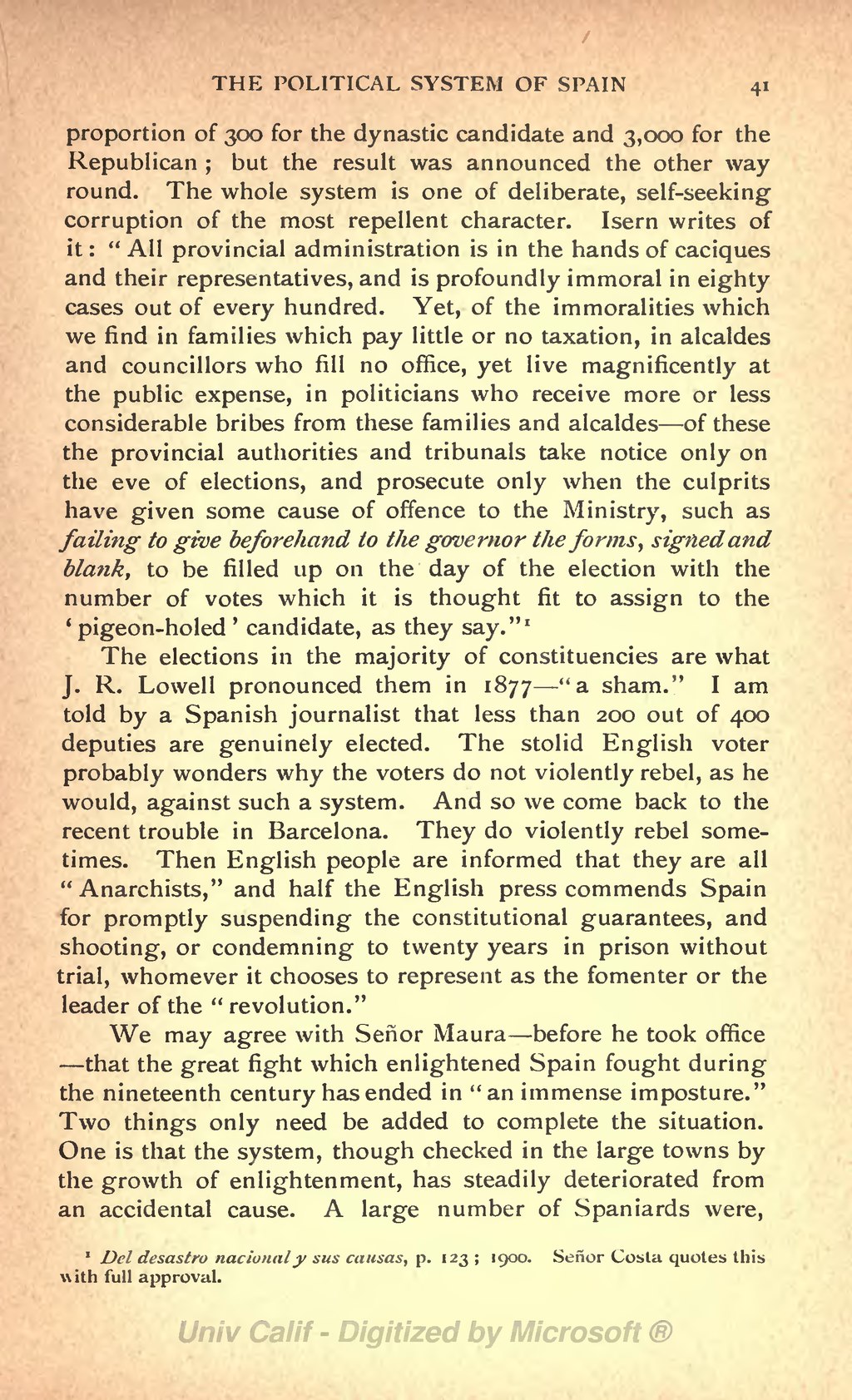proportion of 300 for the dynastic candidate and 3,000 for the Republican; but the result was announced the other way round. The whole system is one of deliberate, self-seeking corruption of the most repellent character. Isern writes of it: "All provincial administration is in the hands of caciques and their representatives, and is profoundly immoral in eighty cases out of every hundred. Yet, of the immoralities which we find in families which pay little or no taxation, in alcaldes and councillors who fill no office, yet live magnificently at the public expense, in politicians who receive more or less considerable bribes from these families and alcaldes—of these the provincial authorities and tribunals take notice only on the eve of elections, and prosecute only when the culprits have given some cause of offence to the Ministry, such as failing to give beforehand to the governor the forms, signed and blank, to be filled up on the day of the election with the number of votes which it is thought fit to assign to the 'pigeon-holed' candidate, as they say."[1]
The elections in the majority of constituencies are what J. R. Lowell pronounced them in 1877—"a sham." I am told by a Spanish journalist that less than 200 out of 400 deputies are genuinely elected. The stolid English voter probably wonders why the voters do not violently rebel, as he would, against such a system. And so we come back to the recent trouble in Barcelona. They do violently rebel sometimes. Then English people are informed that they are all "Anarchists," and half the English press commends Spain for promptly suspending the constitutional guarantees, and shooting, or condemning to twenty years in prison without trial, whomever it chooses to represent as the fomenter or the leader of the "revolution."
We may agree with Señor Maura—before he took office—that the great fight which enlightened Spain fought during the nineteenth century has ended in "an immense imposture." Two things only need be added to complete the situation. One is that the system, though checked in the large towns by the growth of enlightenment, has steadily deteriorated from an accidental cause. A large number of Spaniards were,
- ↑ Del desastro nacional y sus causas, p. 123; 1900. Señor Costa quotes this with full approval.
